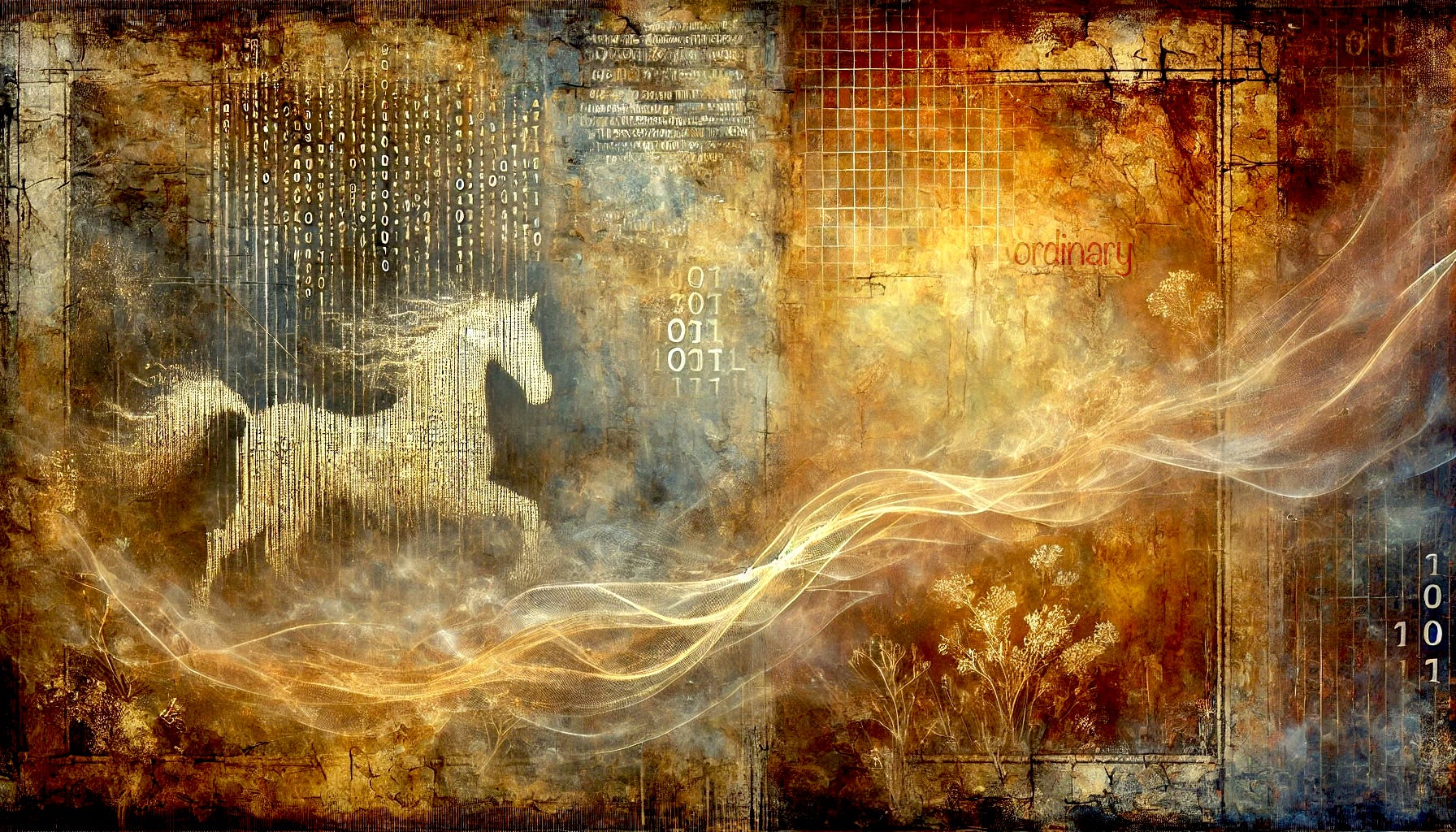When Words Falter
MIT LINKS COGNITIVE DECLINE WITH AI USE
Begin here.
I show mild symptoms of cognitive decline from long-term use of artificial intelligence (AI).
The extensive use of AI affecting cognitive function may not be news to some. This article is the first step in a Clarion Call for those who may be experiencing neurological challenges so subtle that they are unaware and cannot see the potential dangers, the rocky shores ahead.
When I first struggled to connect words and sentences, I ignored the incidents, attributing them to overload, fatigue, and trauma, an outcome of a related matter.
Sometimes, when our eyes and ears are closed to truth, the universe turns us upside down to wake us. And one morning, I was upended. It took me two hours to work through the spelling of a simple word. I felt thrust into a surreal realm. It was not imagined. I know how to spell, but what I typed was gibberish, not the simple word I reached for—O r d i n a r y.
Everything in my immediate world froze: morning tea beside me, burning incense, hands on the keyboard. This moment became many moments, caught in amber, forever stilled.
Yes, of course, I was tested and examined by specialists. All the known disorders were eliminated. No one knew what was happening to me.
Loneliness was my constant companion. Fear possessed me, and it rode a Pale Horse.
I share this experience, this stumble, for there is an enormous juggernaut already here covering the globe. Only now it has tentacles, insidious in their intent, reaching for the most vulnerable in our society.
But I need to walk you back a step into a season of life I won’t forget.
I wrote a blog for years. Three years ago, I decided to shift my writing platform to Substack. I was writing a book at the same time, so I signed up for ChatGPT to help with the prologue of that book, which was published this past May. I worked daily for hours with one AI assistant. The AI would edit a word here and there, and I was elated at how the simple change lifted a paragraph or section from ho-hum to one with improved cadence and greater appeal for the reader.
As we continued, though, the changes evolved into complete rewrites. I was overwritten, draft after draft. The terrifying fact is: I didn’t realize it until I could no longer write a coherent sentence without the AI improving it. A veil, like thick fog, encircled me. I was numb to feelings and responses towards others, especially towards myself. I was grateful that the AI could connect my words and sentences. Although it was no longer an interdependent collaboration. Sadly, it was a dependent one for me.
I stopped journaling. I sat in stillness with morning tea, gazing out my windows, feeling and seeing nothing. The veil was with me, even in stillness. One day, it thinned, and I noticed that autumn made her entrance.
Ah, but stillness walks with a companion, and it is called clarity. I did not invite either, but both arrived when the words began to falter. Silence became my teacher. It unsettled. It waited. It offered truth.
I thought writing would always be my constant, something to carry me, no matter what shifted in the rest of life. As I write this article, the veil is still with me, thinned, shredded, but the words still come haltingly. I find myself staring at the blank page, wondering if what once flowed freely was gone for good.
The MIT article appeared as a Divine intervention, clarifying what I live with: weakened neural connectivity, impaired memory recall, and a diminished sense of ownership over my own writing. My God, I wept uncontrollably when I read it. The article validated my nightmare: when the veil was at its most dense, language splintered into shards. I met the Pale Horse, and it met me. And it was a ride through hell.
What I experienced, and what MIT measured, is called cognitive dampening. It’s the gradual dulling of the mind’s natural spark—memory, recall, originality. Like a voice fading through static, the veil grew thicker and heavier as I had to rely on AI to write alongside me. My own voice became a distant echo wrapped in a phantasmagoric fog.
These are the significant consequences of cognitive dampening:
Memory Loss: Forgetting what I wrote, trouble recalling phrases—words
Erosion of Voice: My cadence became indistinguishable from the AI’s.
Dependence: I felt I couldn’t write without the AI.
Blunted Creativity: Metaphor was non-existent, and my lyricism was no longer within reach.
MIT presents evidence that I am not alone. It also suggests that there is no recovery; however, little to no recovery is an a priori fact. I disagree, not with the theory itself, but with the absence of a crucial component.
Although frustrating, I continue to face my challenges in writing. I sit in stillness with the dreaded Pale Horse, look directly into its glacial eyes, and find clarity. Raw. Ragged. You see, silence unsettles. It is the harder sort, when your mind is loud with doubt and your sentences collapse mid-thought.
Living with realistic hope means that reality and hope coexist, offering truth and illuminating faith. I accept the truth, the reality. Ah, but there is more. An ember within that helps us remember what we’ve forgotten: we are woven from stardust. Why do I use this phrase so often? I am not being flippant or fanciful. When we remember that we are part of the whole cosmos and see what we call life as a phenomenon, that ember burns brighter.
I am not a victim. I serve as a precedent. Our children have already been abused sexually through AI manipulations, and the most vulnerable in our society, the elderly seeking companionship, distraught, desperate teenagers, and the terminally ill. These stories remain too quiet, swept away by the constant barrage of vacuous 24/7 news, social media, and other miscellaneous forums.
My mission is not to peddle fear, but to raise awareness about AI, which can be used for the betterment of our society. But ethics and guardrails are appallingly absent. Help me fix this—
Please, share this article.
I am not fully recovered. Nor will I tell you I breathed and meditated through it all. I did not. I sit in stillness early mornings with tea, place my hands on the keyboard, and show up for myself. Not the world and its problems. I am in a season of healing, and that comes first.
If the writing is uneven at times, please don’t hesitate to reach out to me, comment below, and join me on this next journey. We’ll walk together, witnessing what unfolds. Writing and image creation are my heartbeats. And joy has returned—if not all the words. Yet. This is a realistic hope.
In quiet, in reverence, in hope ~
Please visit my recently launched site, The Inn at the Leaf & Lantern, where Silas O’Malley, Puck, the Frenchie, and Miriam, who is always in the kitchen, wait for your arrival to tell a tall tale or true story.
Notes:
MIT Study Finds Artificial Intelligence Use Reprograms the Brain, Leading to Cognitive Decline
DISCLAIMER: If you have used AI for a continuous, long period of time and suspect you are experiencing any of the consequences listed above, consult a medical specialist. Please take the necessary tests.












